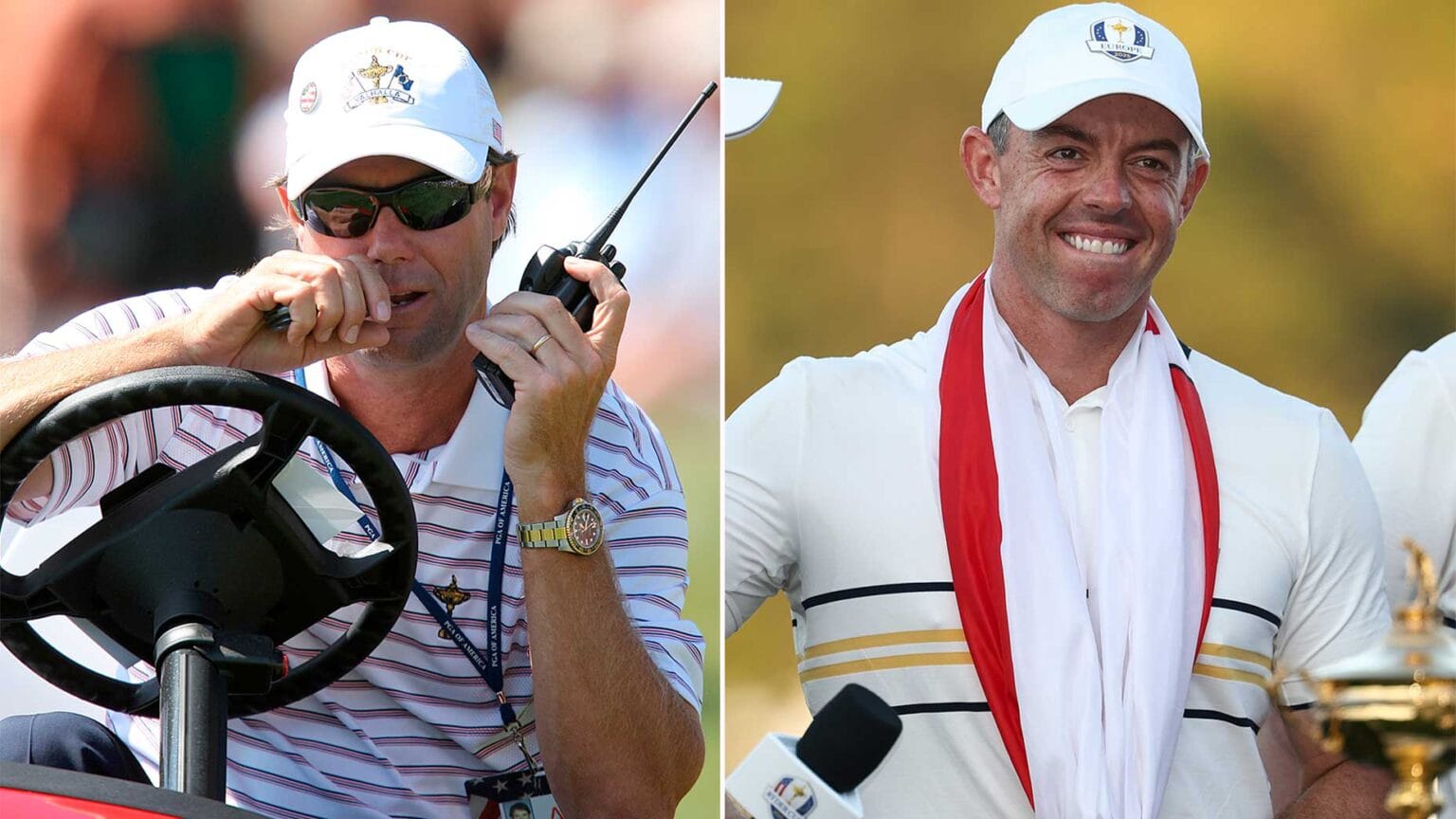Rory McIlroy: A Central Figure in the Heated Ryder Cup at Bethpage Black
Rory McIlroy emerged as a pivotal character at the recent Ryder Cup held at Bethpage Black, not just for his stellar gameplay but also as the focal point of relentless heckling from American fans. As one of Europe’s most celebrated golfers and a recent Grand Slam champion, his performance was highly anticipated. Unfortunately, the cheers of his supporters were often drowned out by aggressive taunts aimed squarely at him and his wife, Erica, highlighting a burgeoning concern over fan behavior in golf.
The Atmosphere at Bethpage Black
The Ryder Cup is known for its passionate crowds, but the atmosphere at Bethpage Black reached unprecedented levels of intensity. With McIlroy as a notable target, the negative fan interactions shifted the narrative from sportsmanship to an examination of etiquette in golf. Throughout the event, McIlroy and his wife found themselves subjected to vulgar heckles that required increased security measures during his matches. This raises questions about how far fans can go in their expressions of support or disdain, especially in a game that prides itself on tradition and decorum.
The Player’s Response
After the competition concluded, McIlroy was asked to address the unruly behavior from the crowd. He didn’t shy away from highlighting the disparity between the expected standards of golf and the reality he faced during the matches. His assertion that “golf should be held to a higher standard” resonated with many fans and players who believe that the sanctity of the game should not be compromised by reckless fan behavior. He emphasized the positive lessons that golf can impart, such as respect and etiquette, which starkly contrasted with the scenes witnessed.
Balancing Performance and Behavior
While Rory McIlroy defended the integrity of golf, he also admitted to snapping back at his detractors on occasion, illustrating the human side of elite athletes. His acknowledgment of feeling targeted underlines the pressures that come with being a high-profile figure in sports. McIlroy’s attempts to maintain composure amidst the chaos were commendable, yet some critics, like former U.S. Ryder Cup captain Paul Azinger, felt that his reactions contradicted his calls for better decorum.
Mixed Messages on Decorum
Azinger provided a detailed critique of McIlroy’s dual stance on respect. He pointed out an instance where McIlroy expressed his frustrations loudly in response to a heckler, asking, “Which is it, Rory? Is it that golf is held to a higher standard or are you just going to ‘F you’ the fans?” This criticism sheds light on the broader conversation about the responsibility of athletes in shaping fan behavior and expectations.
The Bigger Picture: Fan Culture in Sports
The discussion about fans crossing the line is not unique to golf. Many sports have faced similar challenges, especially when emotions run high during critical competitions like the Ryder Cup. Azinger noted that the PGA of America should have anticipated the intense crowd dynamics at Bethpage Black, hinting that a changing culture around sporting events may be prelude to further challenges in fan interactions in the future.
The Ryder Cup’s Competitive Landscape
On the course, the competition held its own drama as Europe initially took a commanding lead of 11.5-4.5 before facing a spirited comeback from the Americans, who approached the final day with determination. The intricacies of team dynamics and individual performances played a crucial role in the contest, culminating in Europe successfully retaining the trophy. This win marked a notable milestone as Europe became the first team to claim victory on American soil in over a decade.
The Emotional Rollercoaster
As the Ryder Cup progressed, the narrative shifted from a potential rout to a nail-biting finish, especially as the American team clawed back points on the final day. The ebb and flow of the competition mirrored the unknown elements of fan interactions, making the event a perfect storm of passion, performance, and pressure. Azinger acknowledged the emotional toll this took on both teams, noting that the psychological stakes were high in the face of such intense crowd engagement.
Moving Forward: Addressing Fan Behavior
The aftermath of the Ryder Cup has prompted renewed discussions about fan behavior in golf. Both players and officials recognize the need for etiquette to be reinforced within the sport, ensuring that future events cultivate an atmosphere of respect. As the sport evolves, discussions like those surrounding McIlroy’s experiences can facilitate a broader cultural shift in the relationship between athletes and their supporters.
Conclusion: A Call for Respect in Golf
As athletes like Rory McIlroy continue to navigate their careers while under the scrutiny of fans, the responsibility for maintaining decorum lies as much with the spectators as it does with the players themselves. The Ryder Cup at Bethpage Black was a landmark event not just for the outcome, but for the discussions it sparked about respect, behavior, and the future of golf. As this conversation unfolds, it is essential to remember that while competition can be fierce, the foundation of sportsmanship should always reign supreme.


